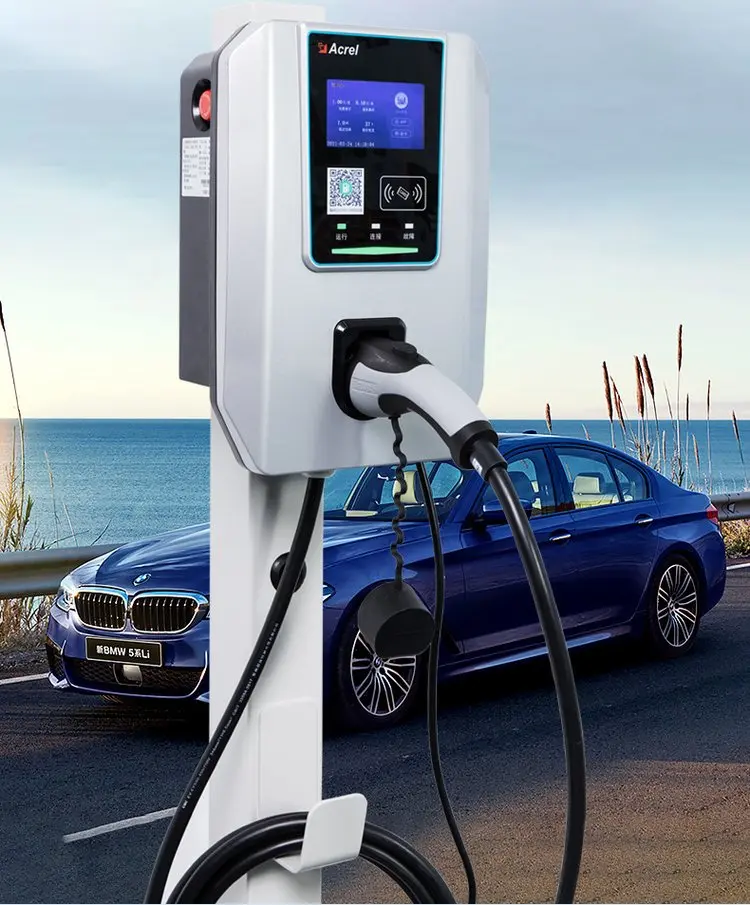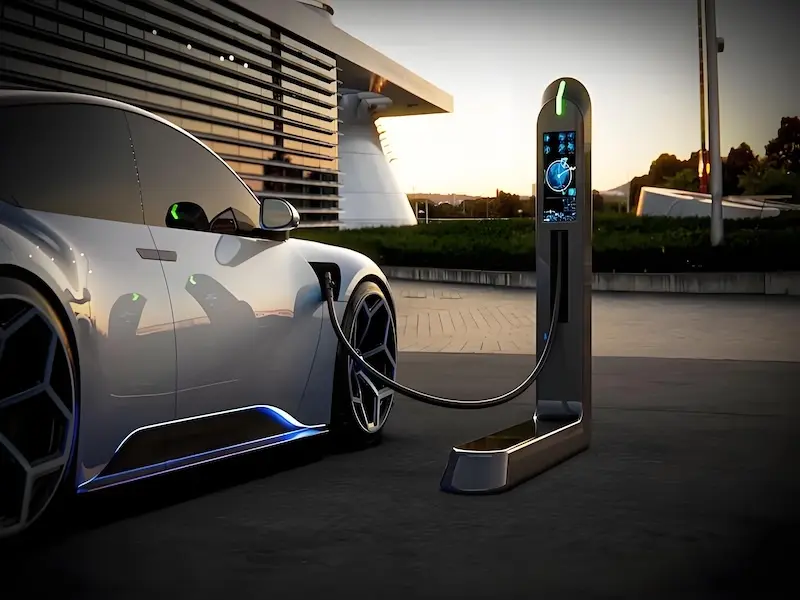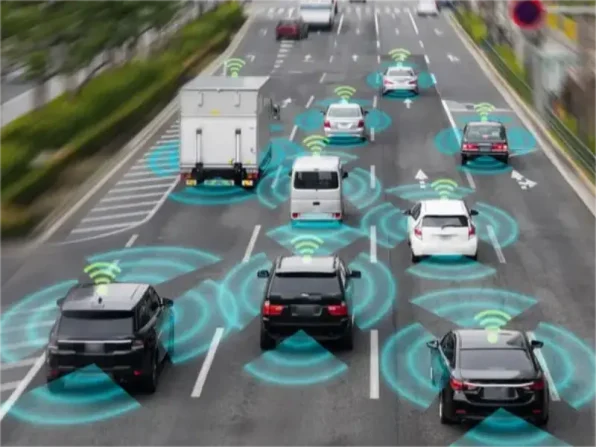- The average utilisation rate of U.S. fast-charging stations not operated by Tesla doubled last year, from 9% in January to 18% in December, according to new data from San Francisco startup Stable Auto Corp.
- Factors such as government incentives, technological advancements, and growing environmental awareness are expected to fuel the demand for electric vehicles, consequently driving the need for charging infrastructure.
- As mentioned by Bain & Company, the world’s leading management consultanc, the EV charging business is only now getting started, and it’s expected to grow into a large and profitable multibillion-euro market in Europe by 2030.
Electric Vehicle (EV) charging stations are a must-have for every electric vehicle. With the increase in sales of electric vehicles worldwide, the installation of EV chargers presents a lucrative business opportunity for various industries.
In this blog post, we will delve into the dynamics of the EV charging station business, analysing its profitability prospects and exploring the factors that influence success in this rapidly evolving sector.
Electric vehicle charging station profits show high growth trend
According to new data from San Francisco startup Stable Auto Corp, the average utilisation rate of U.S. fast-charging stations not operated by Tesla doubled last year, from 9% in January to 18% in December.
The rise in utilisation isn’t just an indicator of EV penetration. Stable Auto estimates that charging stations must spend around 15% of their time charging to be profitable. In that sense, the surge in utilisation represents that a significant number of stations are profitable, says Stable CEO Rohan Puri.

Different ways to increase revenue with electric vehicle charging stations
Running a public charging station as an additional business works well because it doesn’t require much effort to run the complete opposite of a traditional petrol station.
What’s more, EV charging stations can be profitable for your business by enhancing your current revenue streams and building entirely new ones.
Here are some ways to increase revenue with electric vehicle charging stations.
1. Implement variable pricing:
Variable pricing, also known as dynamic pricing, involves adjusting charging rates based on factors such as time of day, demand, and charging station utilisation. During peak hours or high-demand periods, operators can increase the charging fees to capitalise on the increased traffic. Conversely, lower rates can be offered during off-peak hours to incentivise charging when demand is lower. By implementing variable pricing, operators can optimise revenue generation while maintaining affordability and accessibility for EV drivers.
2. Offer premium charging services:
In addition to standard charging options, consider offering premium services to cater to specific customer needs. This could include faster charging speeds, dedicated charging bays with added amenities such as shade or seating areas, or enhanced customer support services. Premium charging services typically command higher fees, allowing operators to capture additional revenue from customers willing to pay for added convenience and comfort.
3. Monetize ancillary services:
Explore opportunities to monetise ancillary services and amenities offered at charging stations. This could include partnerships with nearby businesses such as cafes, restaurants, or retail outlets to provide discounts or incentives for EV drivers. Additionally, consider offering car wash services, vehicle maintenance, or rental services on-site to generate additional revenue streams while enhancing the overall customer experience.
4. Partner with businesses and brands:
Collaborate with businesses and brands interested in reaching the EV-driving demographic through targeted advertising and sponsorship opportunities. Charging stations provide a captive audience for advertising, with opportunities for digital displays, branded charging equipment, and promotional materials. By partnering with relevant businesses and brands, operators can generate revenue through advertising placements and sponsorship agreements while offering value to advertisers seeking to connect with environmentally-conscious consumers.
5. Implement subscription and membership programs:
Introduce subscription-based or membership programmes to incentivise repeat usage and secure recurring revenue streams. Offer subscription plans with benefits such as discounted charging rates, priority access to charging stations, or exclusive perks for members. By encouraging customers to sign up for subscription programmes, operators can build customer loyalty, increase user engagement, and generate predictable revenue over time.
6. Explore government incentives and grants:
Research available government incentives, grants, and funding opportunities aimed at supporting the expansion of EV charging infrastructure. Many governments offer financial incentives, tax credits, or grants to encourage the deployment of charging stations, particularly in underserved or strategic locations. By leveraging government support, operators can offset initial investment costs and accelerate the development of charging networks while maximising revenue potential.
7. Expand network coverage:
Expand the coverage and accessibility of charging stations by strategically locating new stations in high-traffic areas, along major travel routes, and in key destinations such as shopping centres, hotels, and tourist attractions. By increasing network coverage, operators can attract more customers and capture a larger share of the market, thereby boosting revenue from charging fees and ancillary services.
By implementing these strategies, charging station operators can optimise revenue generation, enhance customer satisfaction, and contribute to the widespread adoption of electric vehicles. With the growing demand for sustainable transportation solutions, EV charging stations present a lucrative opportunity for businesses to capitalise on the transition to electric mobility while driving economic growth and environmental stewardship.
Also read: What is a Tesla destination charger?
Also read: How much does it cost to fully charge a Tesla?
The future of electric vehicle stations
The world’s leading management consultancy, Bain & Company, describes the future of the EV charging business as ‘golden’ in the latest study on e-mobility.
As mentioned by the study, the EV charging business is only now getting started, and it’s expected to grow into a large and profitable multibillion-euro market in Europe by 2030.
The future of electric vehicle (EV) stations is marked by widespread integration into urban and highway infrastructure, offering ubiquitous access to charging points.
Advancements in rapid charging technologies will drastically reduce charging times, while smart charging networks will optimise energy usage and grid integration. Vehicle-to-grid (V2G) technology will enable bidirectional energy flow between EVs and the grid, enhancing energy resilience. Sustainability will be prioritised, with renewable energy sources powering charging infrastructure.
Integration with mobility ecosystems and enhanced user experiences will further drive the adoption of electric vehicles.









